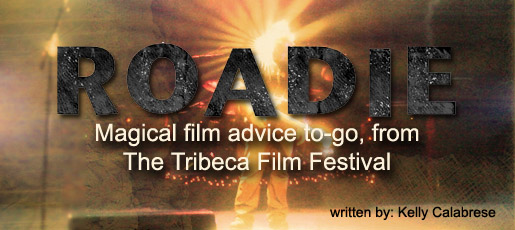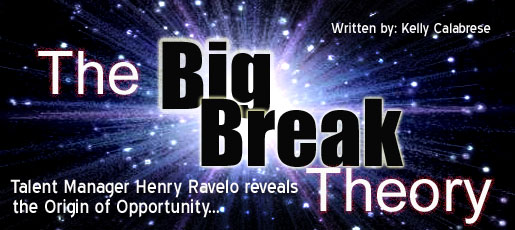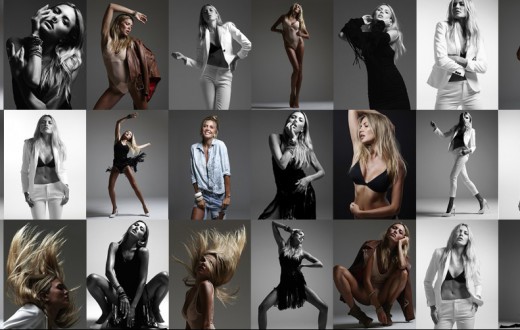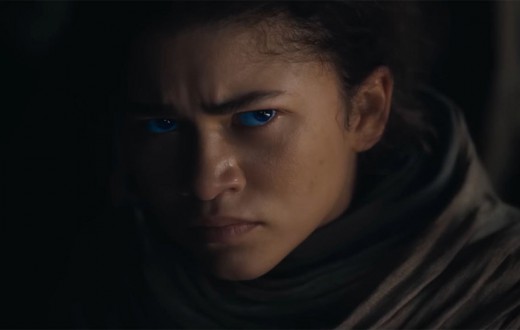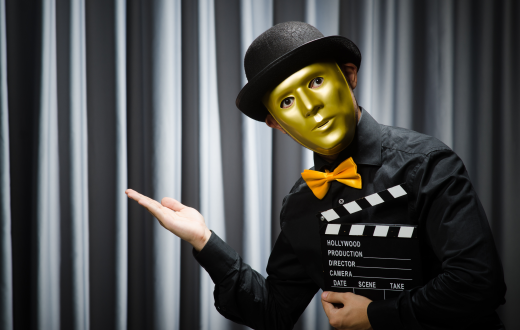Dreams can take you on a magical journey, or they can take their toll on you.
This truth takes center stage in a film called Roadie, co-written by brothers Michael and Gerald Cuesta. The film shot locally in New York and just played at The Tribeca Film Festival. The cast also stars Ron Eldard, Bobby Cannavale, Jill Hennessy and David Margulies.
In Roadie, Jimmy Testagross (ER’s Ron Eldard) has lived his childhood dream: being a roadie for his childhood heroes, Blue Oyster Cult. But the band’s Arena-Rock glory days are a distant memory.
The question arises… What do you do when your dream hits a roadblock? Do you keep going? Or give up?
To find out, NYCastings got exclusive insight from the director and lead actor.
Director Michael Cuesta also directed L.I.E. and episodes of Blue Bloods, True Blood, Dexter, Homeland, and Six Feet Under.
Actor Ron Eldard, a former golden gloves boxer, found success on stage, television (ER) and in feature films.
Here is what Michael and Ron have to say about following your dreams and that winding road to film making magic…
Q & A with Michael Cuesta and Ron Eldard
Q: On this filmmaking journey, what is the most important thing you learned?
Michael: You learn something new every time you work with a new cast and make a film. On this one, I learned to trust the material my brother and I scripted. It came together relatively quickly and there were times that I wanted to try something else and Ron said “what are you doing? Why are you fixing it when it’s not broken?” He asked to try it first before I changed it.
Ron: Michael co-wrote something great. Often an actor tries to figure out how to make the writing work. Can we change this? Bridge this? For the complete piece, I wanted to just say his words. Even in really good films there is major re-writing on the set. It’s a living, breathing thing that changes, it’s a collaboration. But on this film, it was a pleasure to speak these words. It worked.
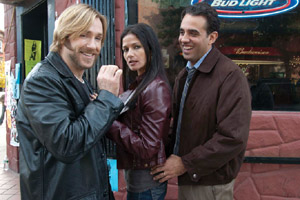 Q: Tell us about the cast, the people who took this trip with you?
Q: Tell us about the cast, the people who took this trip with you?
Michael: A lot of the directing was in the casting. Once I decided to work with Ron, three quarters of the work was done. I am an actor’s director, I come from visuals and am a visual thinker. I have no training in theatre or how to direct actors but think if you cast well you can then get out of the way. On this one I did a lot of that. Ron was always in the character, we talked about things and tried new things and rehearsed, but then I got out of the way.
Q: When is it good to ‘pack’ light, to not overload?
Michael: There are times when you can sit down and over talk the character too much. The more I make films, the more I learn to just play it. Some actors may hate that and want to know what I’m looking for. Some love that. I just did a project where we did over talk it. It came out great but I remember sitting in the room thinking, ‘This is too much, let’s just start doing it.”
Q: On the road to making a film, how important is it to be real and realistic?
Ron: Michael said something to me when we first met. He said, “I really want this to not be acted. He said I want this to feel like it’s just life. I want people to confuse it with real life.”
Michael: Because this movie takes its time, not a lot happens and its really intimate, I was nervous that I was relying so much on dialogue. I was afraid because it’s the least visual movie I’ve made. But in a way it is one of the more visual movies because of the power of the close up. We shot for a long time in Ron’s eyes. I learned the power of the close-up on this one. My other films were more schematic and incident based.
Q: How do you create magic and carry it throughout the filmmaking process?
Ron: I think you can train all you like, I am a trained actor, but you can’t train for magic. It doesn’t work that way. In Laurence Olivier’s autobiography, he would say the magic comes when it comes. I’ll do Hamlet eight show a week and am lucky if in one or two of them I get magic. The rest is craft. This movie had tons of magic and there are magical actors in it. These are people who gave it up. Also, we had a script and a crew that were magic. It starts with you writing something that has magic in it and then you get people who believe in it with skill.
Michael: As far as the filmmaking goes, putting it together is another part of the magic. The tone, the visuals, the editing, the way you cut it. Sometimes one of the things keeps it from being completely magical. Whatever it is, it doesn’t all line up. That is where it becomes filmmaking. You hope that in that scene where Ron is singing in the hotel room that he’ll lose himself and he did. That was the first time when I was shooting that I became a pure spectator. I couldn’t see through the frame. I held the camera on him, hoping it would stay framed.
Ron: I love sports and grew up athletic. Magic happens in sports only when it is done after a million hours of training so that when we are suddenly in a fight, in the game and the pressure is on you are able to just relax and let it happen. Magic comes from instinct, what we know and trust. People ask “How did you do that?” and I don’t know. I just did it. It comes from sensibility, it’s what defines you. It comes from how you see the world.
Michael: And creating magic in film is even harder because it’s such a collaborative thing. I’ve done movies where I knew there was something magical but when I saw the film either the editing wasn’t there or the lighting. It’s not just saying action and cut, you need real filmmaking. In the scene where Ron walks home, we had the camera over his shoulder and just followed him. We caught the shot right. Even choosing that house, that was right.
Q: What is it like to film, on the streets you grew up on?
Ron: I grew up in Queens and several of the places where we shot were ten minutes walking distance to where I lived. Some of that, if you can be present for it, you don’t have to do much. Film, on the camera, is a different thing than stage. I love stage but it is a different thing. There are great stage actors who are no good on film. And there are great film actors who have no clue what to do on the stage. Cameras do a lot of work for you. It’s mostly just relax. Camera’s don’t lie, you just have to let them in.
Q: How do you handle the ghosts along the way, the less likeable sides of a character you play?
Ron: I would not play a character without dignity, even the worst human being. I’ve played people who do terrible things but there has to be a moment, a flash, where that person has a redeeming amount of humanity. This guy can lie, be a joke, mess up, be a dreamer and its ok. Everyone is that. Everyone is a mess up. Everyone knows what it feels like to be a loser. Everyone has dreams that didn’t work at any age. I had the same feelings when I was ten or eight. I remember moments through my whole life when I thought time was slipping by that it wasn’t going to happen.
Q: Did you hit any roadblocks on your acting path?
Ron: When I was a kid in acting school, I didn’t know anything about acting, I thought I was going to be an athlete. I looked around and saw there were no blonde actors who were great actors. There were blonde movie stars, but what about great actors? And then I saw Gérard Depardieu and he was a great actor and I thought, “Oh you can be blonde and be a great actor, now I can be serious.” It really mattered to me. I thought I’d have to dye my hair.
Another funny thing is I did comedy and stand up. I thought it took great balls to be a comic and so tried it. In school, everyone then thought I could only do comedy. I knew I had to show them I could do other things. Funny enough, now more often than not people think I can only do dark things. Although, I am very comfortable with comedy. Now I’m like, “What do you mean you don’t think I’m funny?” It’s all those things you have to overcome.
Q: How important are all the other actors on the street / in the room with you?
Ron: I always, in watching movies, notice the background because I can tell when they are not doing a great job and looked stagey. They make and break scenes in a very major way. They are real important and when I’m on set they have to be in the scene with me. Unfortunately, they are often treated poorly, like children. Barry Levinson, when I worked with him, he was the opposite. He would talk to the background and tell them what the film was about and what he needed.
Q: What advice would you give to actors, to take with them on their journey?
Ron: I think you have to be honest about what your dream really is. To quote Stanislavsky, “Love the artist in yourself, not yourself in the arts.”
For me, many actors want to be stars to be famous celebrities. That’s fine. There is nothing wrong with that. But it is a very different skill set than being an artist. There are very successful celebrity stars and if you watch them you can tell they wanted to be starts their entire life. What they did to get there has very little to do with acting, most of the time.
The most important thing with your dream is to be honest about it. If you have problems in your life, get real. Most people I’ve been around do not succeed because they have an addiction of some sort – drugs, love, food, alcohol, fame. Then, when the dream comes they lose it because of all that. Be honest with yourself, because that is really the only person you get to deal with. Take care of your life. Take care of your life!
For more information on ROADIE visit, www.roadiemovie.com/

